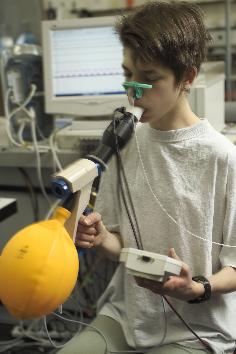Movement Sciences and Sport
Substantiated statements on the positive effects of physical activity require the understanding of the fundamentals of all aspects of movement: physiology, exercise and training theory, and sports biomechanics.

Lack of exercise is a causal factor in diseases of civilization and is often associated with physical inactivity, obesity, hypertension, diabetes and lipid disorders. Thus movement is used for prevention and treatment, yet often without detailed knowledge of the reasons for its beneficial effects.
Also in muscular rehabilitation, movement training goes beyond mere muscle effects, requiring a better understanding of how mechanical forces at the molecular, cellular and organ levels are implemented and measured biochemically.
With increasing age, the question is how to stop muscle and bone loss to reduce falls, dependency and other negative quality of life effects.
The core questions of muscle function in health with respect to disease and old age are the plasticity and regenerative capacity, the neural control of movement and questions of energy supply. These are the focal topics of research in this area.
Professorships in Movement Sciences and Sport
- Regenerative and Movement Biology, Prof. Ori Bar-Nur
- Exercise and Health, Prof. Katrien De Bock
- Motor Control and Learning, Prof. Eling de Bruin
- Brain-Body Regulation, Prof. Sarah Meissner
- external page Biomimetic Membranes and Textiles, Prof. René Rossi
- Exercise Physiology Lab, Prof. Christina Spengler
- external page Anatomy, Prof. David P. Wolfer
- Neural Control of Movement, Prof. Nicole Wenderoth